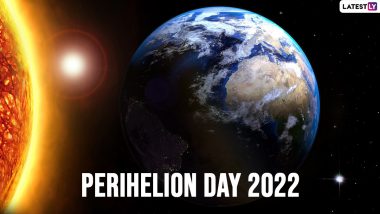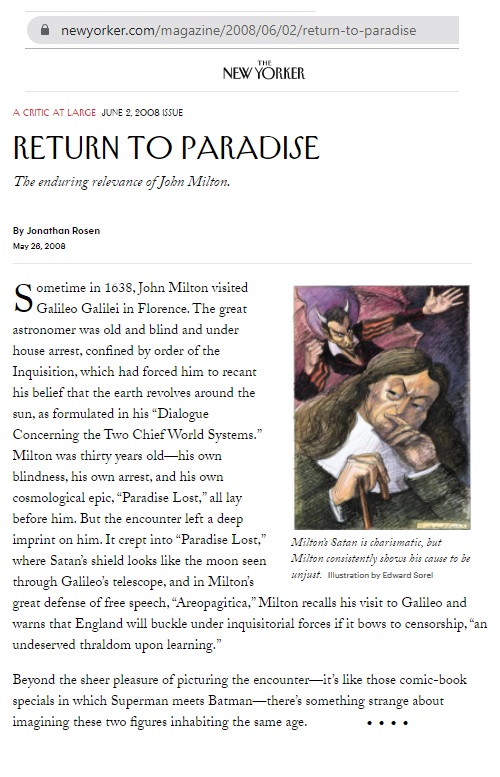"Sometime in 1638, John Milton visited Galileo Galilei in Florence. The great astronomer was old and blind and under house arrest, confined by order of the Inquisition, which had forced him to recant his belief that the earth revolves around the sun, as formulated in his 'Dialogue Concerning the Two Chief World Systems.' Milton was thirty years old—his own blindness, his own arrest, and his own cosmological epic, 'Paradise Lost,' all lay before him….
Beyond the sheer pleasure of picturing the encounter— it’s like those comic-book specials in which Superman meets Batman— there’s something strange about imagining these two figures inhabiting the same age. Though Milton was the much younger man, in some ways his world system seems curiously older than the astronomer’s empirical universe."
— Jonathan Rosen, The New Yorker , June 2, 2008, "Return to Paradise"
More in the spirit of Superman and Batman:
"Huh. You know what? Galileo didn't even write this."
"What!"
"The poem is signed John Milton."
"John Milton ?" The influential English poet who wrote
Paradise Lost was a contemporary of Galileo's and a
savant who conspiracy buffs put at the top of their list
of Illuminati suspects. Milton's alleged affiliation with
Galileo's Illuminati was one legend Langdon
suspected was true. Not only had Milton made a
well documented 1638 pilgrimage to Rome to
"commune with enlightened men," but he had held
meetings with Galileo during the scientist's house
arrest, meetings portrayed in many Renaissance
paintings….
"Milton knew Galileo, didn't he?" Vittoria said, finally
pushing the folio over to Langdon. "Maybe he wrote
the poem as a favor?"
— Angels & Demons , by Dan Brown
(first published in 2000)
See also this journal on August 16, 2009.
Addendum for Aaron Swartz (see today's previous post)—
"The Vatican, it seemed, took their archives
a bit more seriously than most." — Dan Brown


